
Hello and welcome to the class. My name is Tony Sako and I will be your instructor for this class. In this document you’ll learn a little bit about my educational background and work experience, contact information, and a little about my teaching philosophy and style. This isn’t crucial information, but the college and every class on teaching I’ve ever seen say that it’s a good idea to let you know what I’ve done in the past. However, I think you’re probably wise enough to know that this is pretty much marketing, and what really matters is how well I can help you learn. And that the only way you’ll truly know this is to take a class from me.
Oh, I guess since this is the 21st century, you could also check my ratings on sites like Rate My Professor and Yelp (jk about Yelp.) But I’ve learned you should treat these with a little skepticism as Rate My Professor allows instructors to remove any bad reviews and I’ve seen some pretty bad instructors with great reviews.
In any case, here’s 40 years of my life in a nutshell.
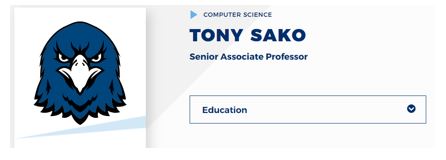
I am a Senior Associate Professor in the Computer Science and Cyber Security Departments. The Senior Associate Professor title probably doesn’t mean much to you. It used to mean something regarding your standing as an instructor at the college, but for the last several years the college has handed out fancy titles instead of raises.

For my educational and work background, I started by taking classes at CBC, then WSU in Pullman, and finally graduated from the University of Washington in 1983 with a BS in Numerical Analysis, which is a combination of Math and Computer Science. And yes, if you do the math I’m older than dirt.

After graduation I worked in industry until 1995, mostly at Boeing Computer Service in Seattle and at Hanford. I was very lucky in my career as I was able to work on many different types of projects, from the first PC’s and Mac’s, to programming on super-computers, to setting up UNIX systems and networks. I left Hanford in 1995 when they said they were going to shut down and clean up the site. At the time they said it would take 5 years, and there would only be 300 or 400 people working at Hanford after the year 2000. I was lucky to get out early as they paid me to leave, if you pay me to leave I will leave everyday! I was hired at CBC in 1995 although it seems like I just started teaching last year. I’ve been lucky at CBC as well, as I’ve been able to teach classes in programming, network administration, web design and now in the new Cyber Security field.

I took a pretty big pay cut when I started at CBC, so to make up the difference I started my own web design company. This was back in the early days of the web, so everything had to be coded by hand. I learned a lot about running a business, which really isn’t saying much since I didn’t know anything to start with. And I learned most of my business lessons the hard way. Mostly by not knowing how to write a contract so that I’d be paid for all of the time I put into each job, or by not knowing how to deal with problematic customers. But I did learn some valuable basic business lessons, and more importantly, I gained a ton of experience in the technical aspects of HTML, CSS, XML and ASP.Net. I also gained a lot of experience with the other aspects of web design including designing for usability, accessibility, and visual interest.
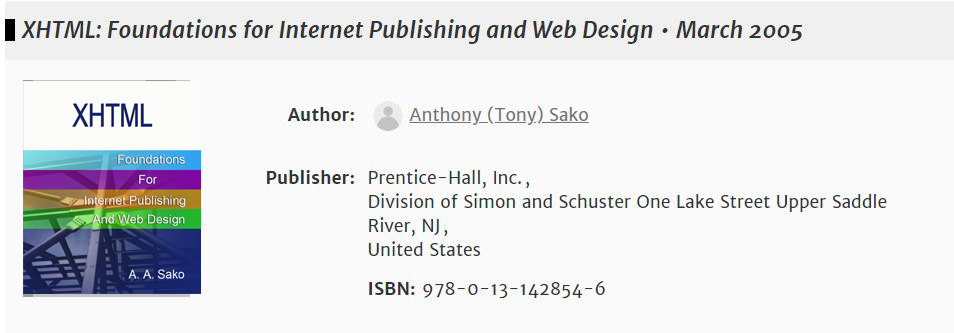
I eventually gave up the business when my first son was born. But I was able to use what I learned to get my first book published. It was called “HTML/XHTML – FOUNDATIONS FOR INTERNET PUBLISHING AND WEB DESIGN”. It’s out of print now, and I haven’t even seen old copies for sale for quite a while.
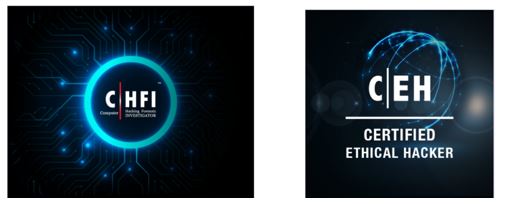
In the meantime I obtained several industry certifications including several from Microsoft, and several from the EC Council (International Council of E-Commerce Consultants) which is the world’s largest cyber security technical certification body. My EC- Council certs are Computer Hacking Forensics Investigator (C|HFI) and Certified Ethical Hacker.

In 2015 I went back to school and earned my Masters in Information Assurance (Cyber Security) from Western Governors University (WGU). WGU is a fully online university where you can complete classes at your own pace. I was able to complete the degree in 10 months full of super fun paper writing. Since I already had significant experience in Cyber Security I didn’t actually learn as much as I hoped I would about Cyber Security. However I did learn a few important things about their online class system; what worked well, as well as things that don’t work well in an online environment. If you’re thinking about options for obtaining your Bachelors or Master’s degree WGU can be a great option if you’re self-motivated and have time to dedicate to the classwork, and want to finish quickly; or if you’re working full time and need to take classes online. Get in touch with me if you want to know more details about my experience with WGU and I’ll tell you what I know.
Regarding online classes, I have also gained additional insight into online classes as I have helped my two sons with their education and K12 classes. This knowledge has helped me in the design and delivery of my online courses, and I believe that it’s helped me improve my courses and provide you with a better online class experience.
As you can see I have many years of experience working in all different aspects of computers, networks, and technology in general. I’m not trying to brag, but I do want to provide you some reassurance that I’m not a n00b and I’m not the kind of teacher that’s doesn’t know the class material and has to fake my way through each class by making you watch me read PowerPoint slides. I’ve also passed these certification exams, so I know what you’ll be going through if you decide to take them yourself and can pass on some helpful hints if you want to hear them.
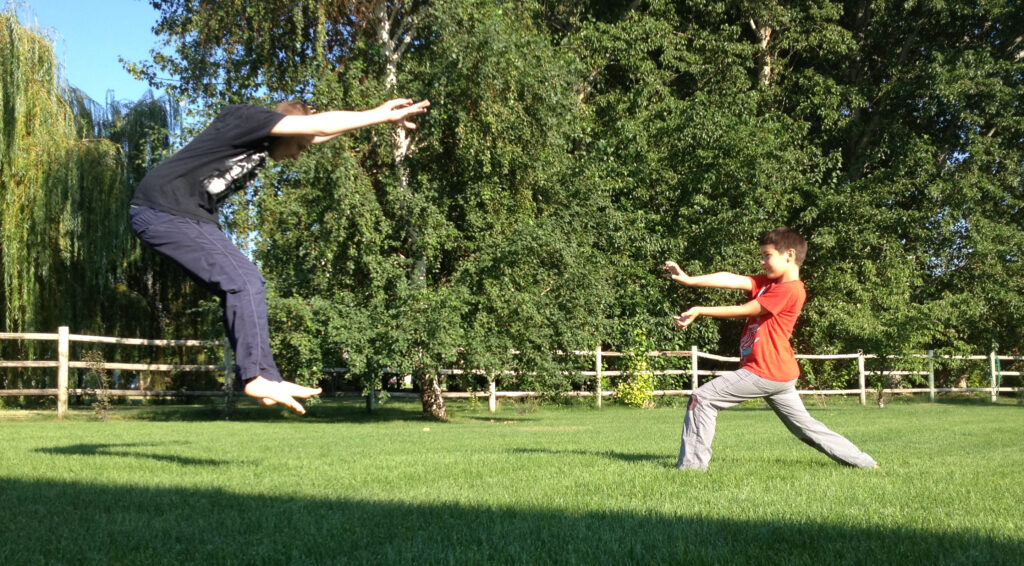
On the personal side I have a wonderful wife, two wonderful boys and a houseful of animals. So if you’re watching any of the class videos and you think you hear kids yelling or laughing or dogs barking; then it’s probably not your imagination as I record a lot of my videos at home.
Contact Information
If you need to get in touch with me there are many ways. Before we go into all of the contact methods, let me say that you DON’T need to tell me if you’re going to miss a class or two. I am the Master of the Obvious, and if you’re not in class when I take attendance I will totally be able to figure out that you’re not there. However, if you’re going to be gone for an extended period of time or need assistance with the class make sure and get in touch with me. And since this may be an online class, Canvas (CBC’s online learning platform) tracks your progress through the class modules. So even though you won’t be physically present in the online classes, I will be able to see if you are doing your work and keeping up.
My phone number at the college is 542-4397, or you can call the main CBC number 547-0511 and ask for extension 2397. Or, you can just call the main CBC number and ask the operator for my extension. You can also send me email at [email protected]. If you do send email please be aware that our college’s spam filter lets a lot of junk email through. So make sure and add something to the subject like “student in CS223” so I will know it’s from you and you’re in my class. This is especially important if you have an email address like [email protected]. If it’s not obvious that you’re one of my students I may think your email is spam and ignore it.
You should also be aware that most days I teach 4 classes in a row. This means I will check my phone messages or email before the first class and after the last class, but I won’t have time to check between classes. So if there’s an emergency you can call our department secretary and she will try to get a message to me.
If you want to leave a written message, leave it with our department secretary and she will make sure I get it.
My office is in the T-Building, which is the giant building to the east of the HUB. Go in through the south west doors, closest to the library, and all of the Computer Science offices are behind the glass wall to your right. My office is T554. If you want to see me in person you should call and make an appointment first, just to make sure I’ll be there.
Teaching Philosophy

The last thing you should know about me is that I’ve been known to tell a lie or two. And, I’m also wrong a lot. If you ask my ex she’ll tell you that I’m wrong about everything LOL. I always tell people that I’m probably wrong about ½ the time, and lying ½ the time. The trick for you is to figure which it is at any time. Like right now, am I lying about lying, or am I just wrong.
(http://www.theatlantic.com/magazine/archive/2013/09/the-way-we-lie-now/309431/)
I apologize if this is scaring you. This comes across a lot better if we’re in a live class than it does if you’re reading it. In class there’s always a few students who have previously been in some of my other classes, and they just laugh and nod which helps break up some of the tension you may be feeling. But in any case, keep reading and you’ll see that things aren’t as bad as they may sound at this point.
About the lying. I try not to lie maliciously or often, but I know I’m going to tell you some things that aren’t true; and I’m going to tell you that it’s for your own good because … wait for it “You can’t handle the truth”. Okay, it’s really not a matter of how much reality you can handle, I lie so we can finish the class in a reasonable amount of time.
Here’s an analogy to help you understand situations where I might bend the truth. If we were studying physics or chemistry I might say that we know that everything is made of the basic elements in the periodic table, or combinations of these elements, so the basic elements are the smallest building blocks of everything. Of course that’s not exactly correct, but maybe it’s correct enough for us at this point in our studies. We could go even deeper and take more time, and explain that elements are made of atoms, and atoms are mode of protons, neutrons and electrons; and these are the smallest particles we know about. And even this is a lie; but maybe it’s all the detail we need to know at this point in the class. If we had to study quarks and neutrinos and all of the sub atomic particles we may never make it through our class. And the details of the sub atomic particles may not help your understanding of the basic concepts; in fact they may just make it more confusing.
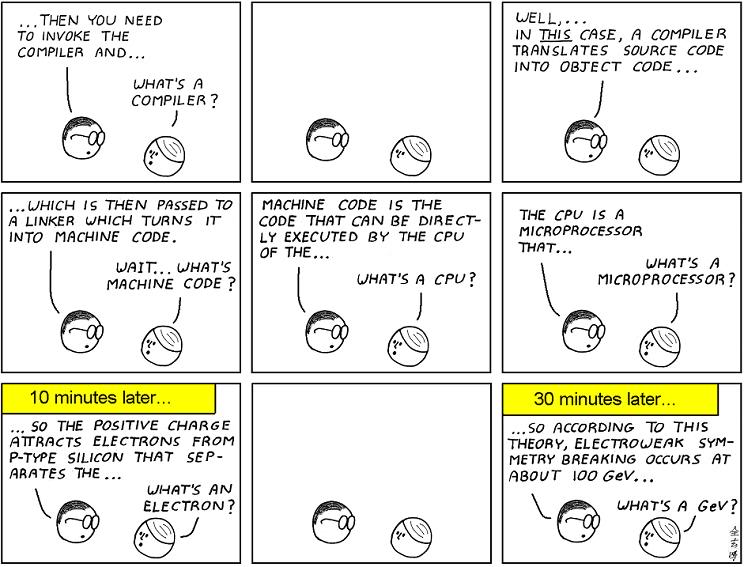

So I may say some things that are true at one level, but may not always be true if you look at it in more detail. I try to point these situations out as they arise, but I may not catch them all.
And as far as being wrong, let me explain when and why this may happen. It’s not because I’m a politician and believe there are alternate facts. It happens because there are so many small details to learn about and keep track of, like what year was Linux invented, or what’s the bandwidth of USB 3.0. I always make a joke and say “If I were a good teacher I’d make you memorize everything … “ But memorization isn’t learning, at least to my way of thinking. In fact, I’m a strong believer in Einstein’s quote “Never memorize something that you can look up1”. So when I lecture I might get the numbers wrong and say the bandwidth of USB 3.0 is 480 MB/s instead of 500 or that Linus Torvalds wrote the first Linux kernel in 1990 instead of 1991. I’ll tell you that I’m guessing, because I don’t want to take the time to look it up, especially if the exact number isn’t important. I do try and check all of my facts, numbers and data that I present in my lecture notes and videos. But I’m sure there are still some that have slipped through.
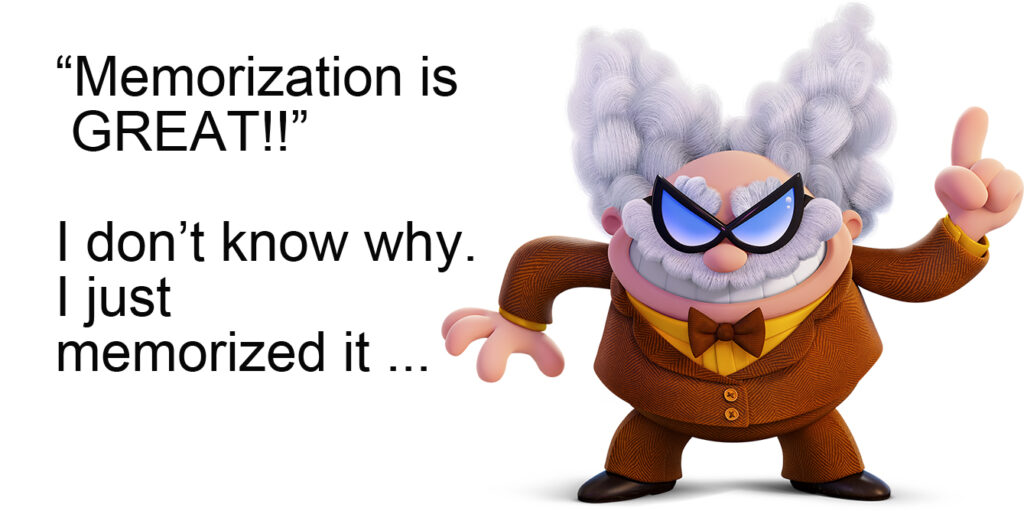
In any case, the fact that I believe it’s more important to learn how to think than it is to memorize facts works both ways. That is, you won’t be tested on your ability to memorize things like you are in some classes. I know of several teachers who still give timed tests where you have to memorize everything, or they may allow you to use one sheet of notes. To me, these types of tests are a sign of an instructor who has never had a real job in industry and has been mired in academia for their entire career. Once you start your career you’ll find that no one cares that you memorized the clock speed of all Intel CPUs, or the names of all of the top level DNS domains. They only care that you can solve the problems you’ve been asked to solve. So on most of my tests there are a lot of questions that test your ability to think, and your ability to apply what you’ve learned to solve some problems. And the tests are all open book, so you can always look up the details if you need to.
1What Einstein actually said was in response to whether he knew the speed of sound. He said “[I do not] carry such information in my mind since it is readily available in books.”
